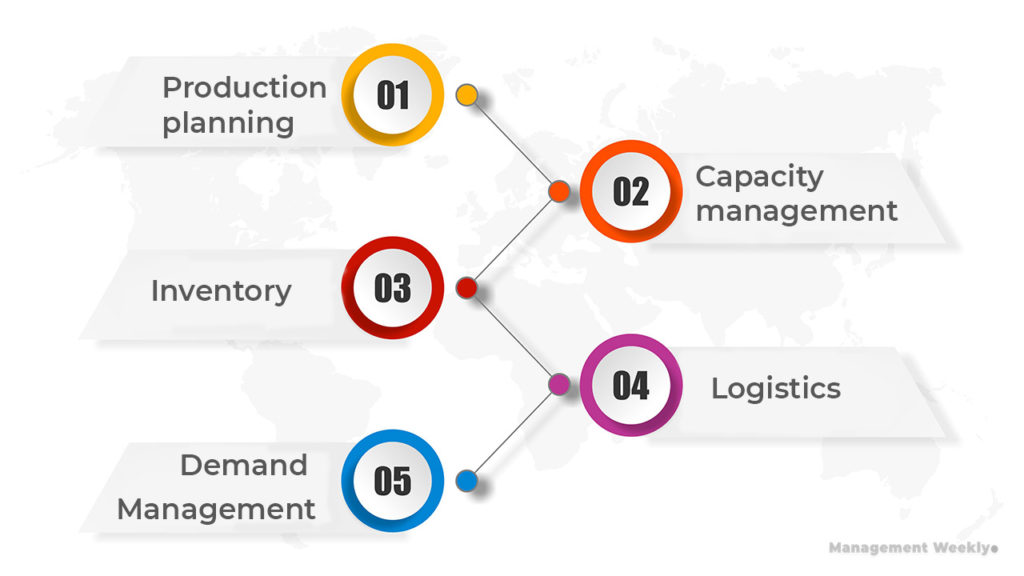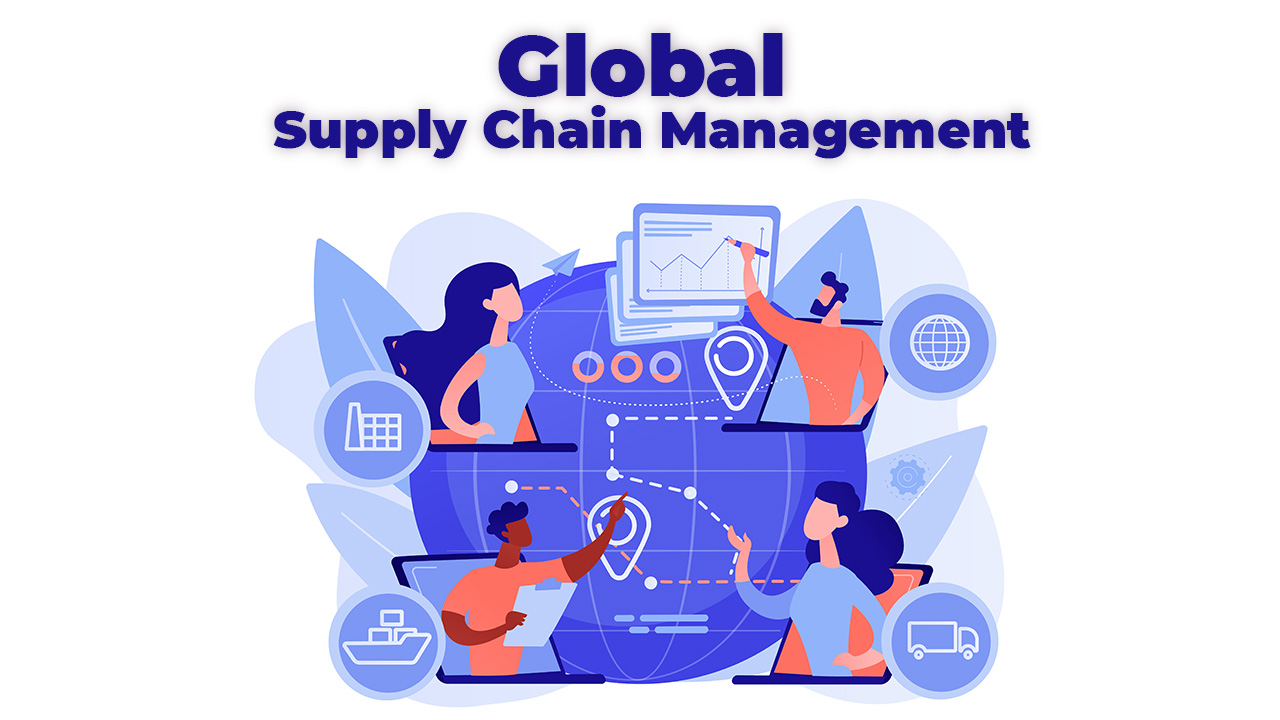A global supply chain (GSC) is essentially a worldwide network of vendors and suppliers that enables a firm to create and deliver products and services. Therefore, global supply chain management (GSCM) is vital for modern firms.
A trend towards globalization of supply chain
Traditionally, firms attempted to have their network as close as possible. A vendor that is closer will be better known therefore there is lower risk. Also, a partner from the same geography will have similar laws and regulations making the transactions simpler. It may even reduce the transportation time. Although there are many advantages of domestic networks, firms are increasingly going global. The answer to this lies in the benefits of GSC. Some of the key reasons for firms to look beyond their shores are the following:
- Reduction of risks
- Process efficiency
- Reduced costs
- Increase in quality
One of the reasons why firms started looking beyond their shores was domestic unrest. The stock market crash of 1987 and 1991 pushed American firm Digital Equipment Corporation into seeking global supply chain partners (Arntzen, 1995). When you consider a global partner, you would also look at the issues common in that geography like domestic unrest, floods, earthquakes, etc. Secondly, firms expand their supplier chain network to increase process efficiency. Strategic GSCM helps us with this as well. Thirdly, GSCM also reduces the operating costs and cost of goods sold. Imagine the cost of a smartphone if it was fully manufactured and assembled in Oregon or Helsinki. Finally, GSCM also helps in improving quality and reduce defects. You can source parts from the factories that are compliant with your quality standards at a much lower price than domestic partners.
Success and risk factors for GSC
The success of GSC depends heavily on how it is developed and managed. First and foremost, the most important step is due diligence. A supply chain is only as strong as the weakest link. Secondly, financial planning is also vital when it comes to developing a GSC. Thirdly, we should analyze the operational issues for each of the nodes. Finally, a proper mitigation strategy needs to be developed to deal with any contingencies. Here are certain points to keep in mind:
- Supply chain resilience
- Strategy for any bullwhip effect
- Response velocity for the supply chain
- Sustainability requirements for the partners
- Upgradation plan for IT related to the GSCM
- Pro-active approach to improvements and innovations in global supply chain management
The process has become more important than product in the age of sericitization (Mishra & Pani, 2020). A new source of sustainable advantage therefore lies in the ability to integrate the global resources and technology into a winning value proposition.
Considerations for Global Supply Chain Management
Firms that have successfully managed their global supply chain, consider some key drivers carefully. Operations and supply chain management systems help in managing the day-to-day operations of the firm. Some of these key issues are:
- Network management to ensure delivery of services to customers are met on time
- Location planning for the network nodes such as vendors, suppliers and warehouses
- Minimizing the material in progress
- Reduction of the three types of industrial wastage (Muda or physical waste; Muri or overburden and Mura or unevenness)
- Financial considerations like tax benefits and deferred taxes
- Consideration of the regulations and laws
Overall, we can say that there are some broad areas that are part of the global supply chain management process. Furthermore, a global supply chain must find a solution to the problems of minimizing cost, minimizing time, and maximizing quality. However, specific to the operational area, we have issues related to production planning, capacity and demand management, and logistics.

Challenges of global supply chain
GSCM is more difficult to manage when compared to the domestic supply chain. Firstly, the global network has higher costs. The transportation of some parts from Vietnam will obviously be more expensive compared to a local supplier. Usually, the transportation costs are offset by the lower cost of the product. However, with Industry 4.0 and increasing automation, domestic procurement may become cheaper.
Secondly, there is a cultural barrier to international trade. Dealing with people from a different culture, time zone and language still remains a challenge. Add to that the problems faced in the third world countries. All of these problems not just make it difficult to develop an international network, it also makes it difficult to maintain them.
Thirdly, there is also increased exposure to financial risks. When you trade across the border, you automatically take some forex risk. Some of the financial risks can be mitigated by hedging.
Key performance indicators for GSCM
The success of global supply chain can be assessed through a variety of means. Based upon the common theme we have discussed earlier; we can further develop some key performance indicators or KPIs.
| Profit Maximization | Total transportation cost |
| Variances in the COGS | |
| EBIT (Earnings Before Interests and Taxes) | |
| PAT (Profit After Tax) | |
| Logistics and Supply Chain | Material inventory |
| Work In Progress inventory | |
| Finished Goods inventory | |
| Material Shortage and Overage | |
| Quality | Net Error rate for products |
| MTBF (Mean time before failure) |

Tanımadığınız insanların cesetleri ile dolu, kaza yapmış bir arabada bacağınız kırılmış bir şekilde uyandığınızı hayal edin. Nerede olduğunuzu, kim olduğunuzu ya da ne yaptığınızı bilmiyorsunuz. Zihniniz sırlarla dolu bir esrar perdesi gibi. Vahşi doğanın ortasında içgüdüsel olarak hayatta kalmaya çalışıyorsunuz. Peki, gerçekle yalanın, hayalle gerçeğin birbirine girdiği, hem kurban hem şüpheli olduğunuz bu bilmecenin içindeyken geçmişinizden kaçabilir misiniz? Santo Rodrigez